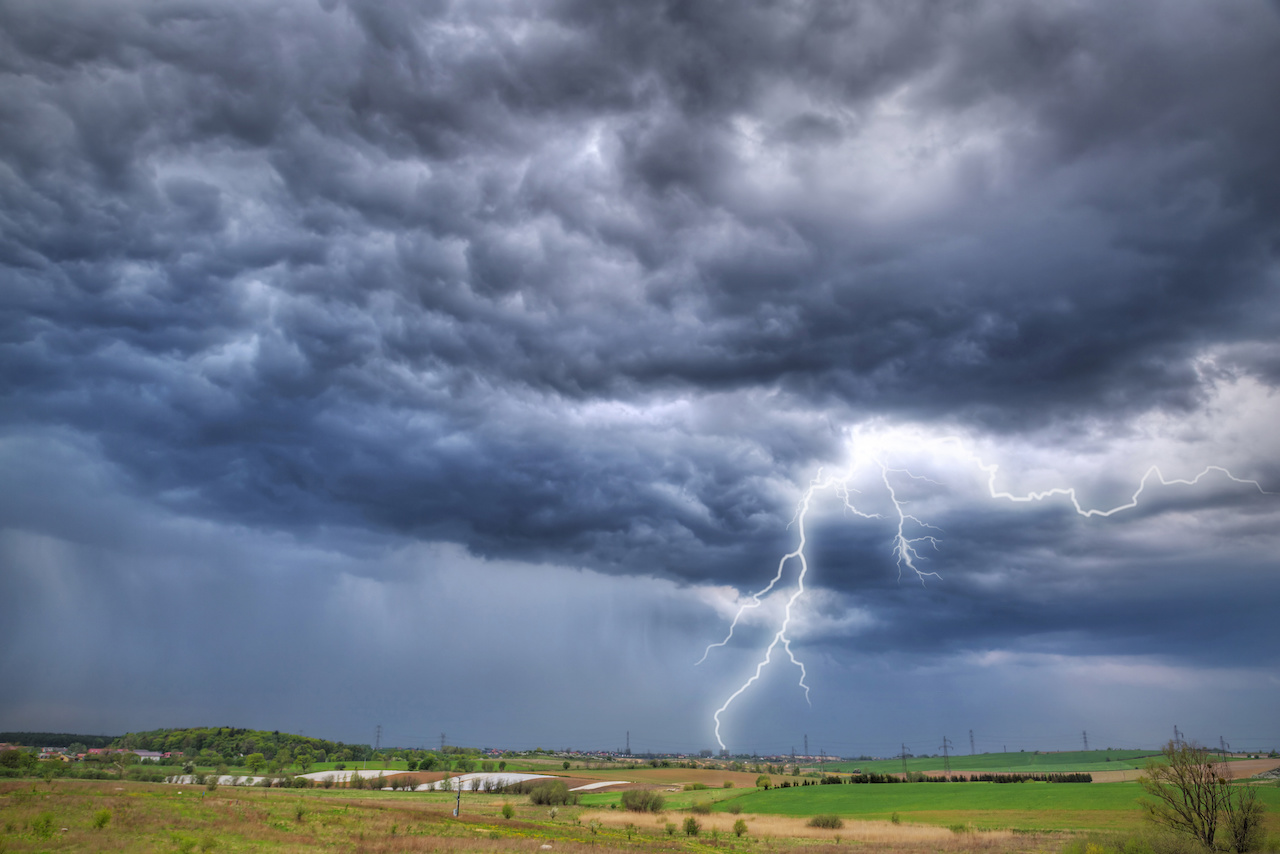Asthma is a chronic disease that is inherited and can affect anyone at any age. The triggers for an asthma flare up or an “Asthma Attack” are typically viruses, allergies, exercise, and reflux.
Warning! There has been an increase in emergency department visits and even deaths related to asthma attacks occurring during a thunderstorm. There is growing data that during severe thunderstorms in the spring and summer individuals may suffer from a severe asthma attack. These attacks are more prevalent in the spring and summer when pollen counts and mold spore levels are high.

This phenomenon has been referred to as “thunderstorm asthma” or “thunderstorm-related asthma.” The theory is that the pollen and mold spores are drawn up into the sky and the rain will cause the pollen grains to rupture into smaller pieces, between 0.5 mm and 2.5 mm in diameter. Accompanied by the high winds, individuals will inhale these smaller particles into their respiratory system causing the asthma attack and other respiratory problems.
One example occurred in Melbourne, Australia in 2001. During a thunderstorm there were 8,000 emergency department visits and four deaths. Individuals that have asthma and are not undergoing asthma treatment are at major risk. In the Melbourne epidemic in 2001, between 20 and 40 percent of those affected had never had asthma problems before.

Dr. D’Amato is an expert in this field and has documented these weather-related epidemics. In London in June 1994 during a severe thunderstorm, in the space of 30 hours 640 patients had asthma attacks.
According to The Guardian, “In the space of just 30 hours, 640 patients with asthma or other airway diseases attended London hospitals, nearly 10 times the usual number. For 283 patients, the storm triggered their first known attack of asthma. And for every patient that did seek help, many more suffered at home.”
Get ready – we are entering into our spring and summer storm season in Kansas City, and we always have severe thunderstorms this time of year. We are also expecting to experience high pollen counts this year. It’s important to start your daily asthma management if you have a diagnosis of asthma and if you suffer a respiratory problem please come in for an appointment so we can determine if you have asthma and what you need to do for any attack.
Contact us at nurse@kallergy.com or (913) 451-8555 today to schedule an appointment to evaluate and manage your asthma treatment to get ahead of this year’s Spring and Summer thunderstorm season.

